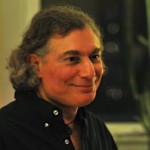 Darlene Russ-Eft-“leading the profession through research”
Darlene Russ-Eft-“leading the profession through research”
Since 1984, Darlene Russ-Eft has been an on-going contributor to the Human Resource Development (HRD) field by “leading the profession through research” and the “development of new knowledge”. She is considered one of the founders of the field of HRD, with a passion for teaching and research that has awarded her with an Academy of Human Resource Development (AHRD) Hall of Fame honor.
This Hall of Fame award is unique in that it is only given to those who have received the AHRD Outstanding Scholar Award prior. Russ-Eft received this award in 1999 with evidence of scholarly publications that contribute to the fundamental theory and practice of HRD. This practice is more specifically seen in her books and articles that emphasize and highlight the role of program evaluation. At this time Russ-Eft was the Director of Research for Achieve Global, an international training provider. She also contributed to the development and adoption of the AHRD Standards on Ethics and Integrity (AHRD, 1999) and is currently co-chair of a task force working on revisions of those standards. She has served on the AHRD Board, as the vice president for research, and recently as president.
The focus of Russ-Eft’s research involves the connection of human resource development and program evaluation. At OSU, she engages in evaluation of educational programs and activities related to the Bioenergy minor program, the Science and Math Investigative Learning Experience (SMILE) teacher workshops, and the SMILE Summer Bridge program that introduces Bioenergy concepts.
Russ-Eft’s education and research efforts have allowed her to travel as well. As a graduate student, she served as a teaching assistant in undergraduate psychology courses. While a researcher at the American Institutes for Research in Palo Alto, she taught undergraduate courses in psychology. One of her recent travels for teaching has been to Bangkok, Thailand where she taught a course titled Ethics and Good Governance in Complex Organizations in the doctoral program in Human and Organizational Development at the National Institute for Development Administration (NIDA). Russ-Eft shares that she has also guest-lectured at other universities in the United States and internationally.
Russ-Eft has worked at Oregon State University’s College of Education since 2002. Today she continues her work as a Discipline Liaison in Adult and Higher Education (AHE) and a Professor in the doctoral program for Community College Leadership, Higher Education, and in the AHE Masters program. Russ-Eft shares how she “love[s] both research and teaching” and how she has “enjoyed the various research and evaluation projects that have been a part of [her] OSU position.” She emphasizes that she has especially “enjoyed teaching the various courses here; including Learning Theory at the masters level, Instructional Leadership at the doctoral level, Research Analysis and Interpretation at the doctoral level”, as well as her current courses. In addition, “advising both masters thesis students and doctoral advisees have been a highlight” for her.
Along with her love for teaching and research, Russ-Eft says, “for fun [she and her] husband, who is a retired Division Counsel (lawyer) for the Army Corps of Engineers, love to travel, hike, bicycle, and cross cross-country ski, and sing in a choir.”











